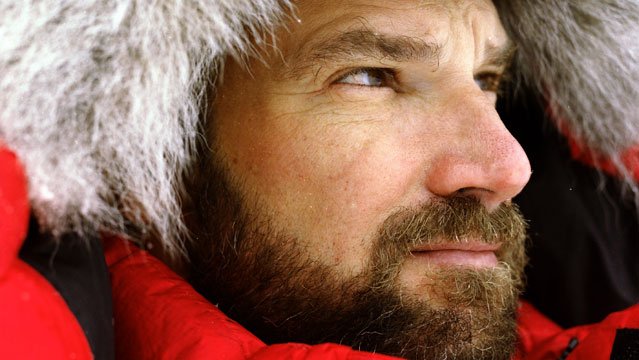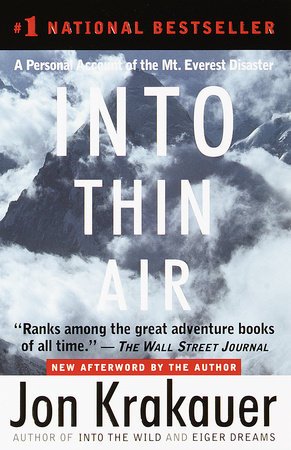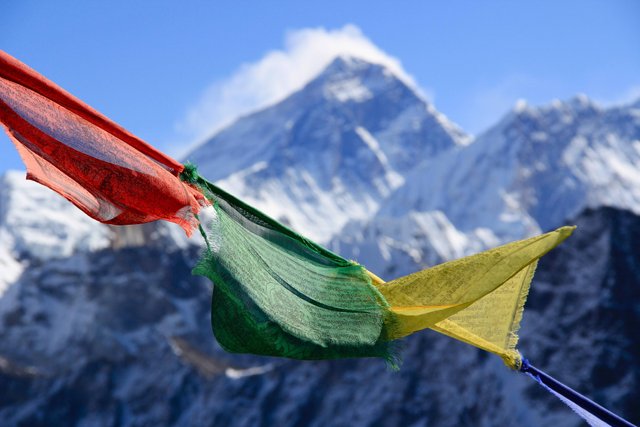Do you Hate Books?
Well, I used to hate books. But things got changed somewhere along the journey. I realised that I was reading the wrong books. I was trying to look scholarly and “educated” by reading the heavy classical books like “War and Peace” by Tolstoy. Of course, I could not pass through first few pages. The books were the source of impressive decoration. After all Belle got impressed with the library of Beast.

But then I realised I do not have to impress anyone. If I like the feel of a book then I must find a book which can help me in finishing it completely. And believe it or not, in my bid to succeed, I read everything, including the trash literature even. And now, I cannot spend a day without reading something; be it just one page.
What clicked for me was adventure books. Every kind of adventure book – fiction, nonfiction and even memoirs.
I realised that since I will never be able to undertake certain feat in my life, therefore I must read about them. For example, I know I can never conquer Everest or K2. Oh well. Forget about the summit, I don’t think so that I can even go the base camp. So what should I do, considering the fact that I literally dream about such adventure?
The answer was Books.
Today I am going to tell you about one such book.

Jon Krakauer - author of the book
Book: Into Thin Air: A Personal Account of the Mt.Everest Disaster
Author: Jon Krakauer (a full-time writer and a part-time mountaineer)
Originally Published: 1996

As it is obvious from the title, the book is the personal experience of the writer.
As you know over the years Mount Everest has been so popular among the adventurers and mountaineers for the level of risks and adrenaline rush it offers. Jon Krakauer wrote in the backdrop of the fact that 1996 proved to be a very disastrous year as many mountaineers lost their lives from his group. So, understandably, the book does not paint a very friendly adventure picture of the expedition.
The book gives a very detailed and guided account of the expedition, the members of the group and their hard descend. ''The expedition . . . became an almost Calvinistic undertaking,'' according to the writer.
As it is an account of the real-life experience, therefore, there is not a single low point in the story. It all moves forward till he reached the base camp. We can easily call it a sad story and the writer also mentioned that “I hoped something would be gained by spilling my soul in the calamity's immediate aftermath, in the toil and torment of the moment.''
The whole ordeal was described as painful, bone-chilling, finger-freezing and obviously dangerous. The climbers had to face the unexpected falling of huge rocks of ice while lurching on some cliff. At one point Krakauer wrote, "I quickly came to understand that climbing Everest was primarily about enduring pain."
The disaster struck when the teams were faced with the storm. ‘A bank of clouds was assembling on the not-so-distant horizon, but journalist-mountaineer Jon Krakauer, standing on the summit of Mt. Everest, saw nothing that "suggested that a murderous storm was bearing down."’
That deceptive cloud proved everyone wrong which was responsible for many lives.
The best moment of the book comes when Krakauer mesmerizingly described the coming of that cloud and its after-effects. His narration was not only limited to the deadly details but he tried to make sense of the allure of this mountain. He tried to capture beautifully as to how and why professionals and amateurs flock to scale the summit every year. This particular insight can force any enthusiast to continue reading every single detail in the book:
"People who don't climb mountains...tend to assume that the sport is a reckless Dionysian pursuit of ever escalating thrills.... The ratio of misery to pleasure was greater by an order of magnitude than any other mountains I'd been on. I quickly came to understand that climbing Everest was primarily about enduring pain."
At one point in the book, where he was talking about the search for a missing friend he said, “I fell to my knees with dry heaves, retching over and over as the icy wind blasted against my back.”
You might have seen many movies and read many books where all such adventure seekers are portrayed as heroes. But this book has put them in the light of humans. It can even be called as selfish motives of some individuals who want to prove something to the world and at the same time risking the lives of those around them. Nonetheless, it gave a fresh perspective to the whole ordeal.
The first look at the peak while they were climbing, made him say this,"The summit looked so cold, so high, so impossibly far away. I felt as though I might as well be on an expedition to the moon. As I turned away to continue walking up the trail, my emotions oscillated between nervous anticipation and a nearly overwhelming sense of dread."

My Final Verdict:
Krakauer has not only described the event but the life stories of the people of his group thus making it more realistic and relatable. The book gives an adrenaline rush and an opening story at many levels. As he himself wrote in the foreword, “ . . . what happened on the mountain was gnawing my guts out. I thought that writing the book might purge Everest from my life.” This book will present a very clear picture as to what can happen at the mountain. Into Thin Air is a beautiful work of non-fiction with much added educational value. Although you will not feel for a minute that you are being instructed about the climb.
Happy Reading Folks!!!
I will appreciate your comments.
War & Peace, what is it good for ;)
One thing I used to feel a little "embarrassed" about was how much time I spent reading about sports articles (a lotttt of time), since whether or not the article has any particular intellectual merit, sports are kind of dumb. But at some point, after a few years, I noticed I was reading about 50-70% faster and it meant I could take in as much of the content as I wanted, so I stopped worrying about finding perfect articles or justifying the merit and just read as much as I wanted to :)
see thats the point...and yes WAR AND PEACE...what is it good for? but as i said it is CLASSIC so i MUST read it.....
nowadays I am struggling to read those articles which are on steemit, talking about the currency and whales and upvotes and all the intricacies of the game....
Of course I am failing at that miserably :P
there are so many ancillary tools and so on and so forth that it definitely gets exasperating to keep up with; while it is great to earn money here, it is missing the simplicity of just signing onto reddit, 4chan, or any normal forum
This is a great review. Reading material is such a personal decision. I used to force myself to finish books I didn't enjoy, simply because a friend had recommended them or they were on some "Must Read" list or other. But I don't do that anymore. There are so many books that I don't have time to spend on someone else's favourite if, after a few chapters or pages, the story just isn't speaking to me.
Into Thin Air sounds interesting, though. I might have to give it a shot. 🙂
Thank you so much....and this pressure of bestseller made me buy '50 shades of grey' :P
I actually completed the whole book in an effort to find a reason to make it to best seller book